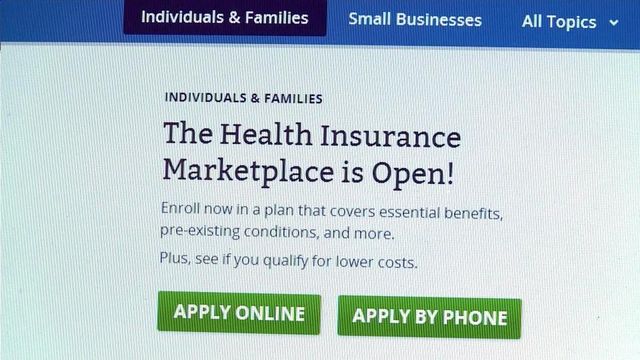Professor: Reviving old policies jeopardizes health exchanges
President Barack Obama's decision to allow people to stick with health plans that don't meet the minimum requirements of the Affordable Care Act for at least one year could throw the online health exchanges off-kilter, according to a Duke University professor.
Posted — UpdatedObama last week granted a one-year exemption for such plans after an outcry from people who said their health coverage was being canceled despite the president's repeated assurances that people who liked their health insurance would be able to keep it under the new health care law.
The cancellations would have affected more than 473,000 people in North Carolina, state Insurance Commissioner Wayne Goodwin said.
Donald Taylor, an associate professor at Duke's Sanford School of Public Policy, said Monday that the insurance market might be better off in the long run if all of those health policies were canceled.
“The development of people potentially being able to keep their old individual policies, if that somehow all people who decided to do that happened to be healthy people, that could cause problems for North Carolina’s federal exchange market,” Taylor said.
The online exchange, like all insurance markets, needs a balance of good, medium and bad risks to spread costs around and stabilize premiums, he said. Pulling some of the potential healthy enrollees from the exchange would tip the balance toward the unhealthy end, leading to higher premiums, he said.
"We don’t know that’s going to happen, but in the end, that’s the biggest worry," he said. "In one sense, renew-for-one-year deals with the short-term political problem, but it could put the long-term health of the exchange in jeopardy."
Kristin Perry and her family could provide four healthy people for the exchange if they choose to buy coverage there.
Perry said Blue Cross Blue Shield of North Carolina canceled her plan, and a comparable plan would almost double in price next year – the monthly premium will increase from $550 to $900. She would qualify for a federal subsidy to pay for part of her premium if she buys coverage through the exchange, so she plans to shop around.
"Our policy is totally changing from what we have to what it's going to to meet the mandate," she said. "(Whether to keep our current coverage) is a hard decision, not knowing what else opens."
Taylor said losing too many families like Perry's could mean higher premiums on exchange plans beyond 2015 as Blue Cross and Coventry Health Care of the Carolinas struggle to balance costs.
"If you have a consequential piece of public policy, no way it's not going to create winners and losers," he said.
• Credits
Copyright 2024 by Capitol Broadcasting Company. All rights reserved. This material may not be published, broadcast, rewritten or redistributed.






